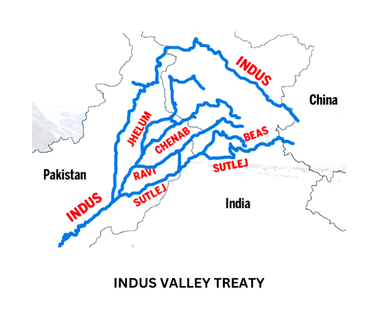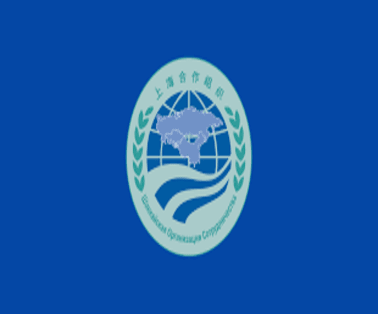India has issued a notice to Pakistan seeking modification of the more than six-decade-old Indus Waters Treaty (IWT) that governs the sharing of waters of six rivers in the Indus system between the two countries.
Key Points
- India said the notice follows Pakistan’s continued “intransigence” in implementing the treaty, by raising repeated objections to the construction of hydel projects on the Indian side.
- The notice, sent on January 25 through the Commissioner for Indus Waters, gives Pakistan 90 days to consider entering into intergovernmental negotiations to rectify the material breach of the treaty.
- The notice has invoked Article XII (3) of the treaty which says: The provisions of this Treaty may from time to time be modified by a duly ratified treaty concluded for that purpose between the two Governments.
The Issue

Dispute Redressal Mechanism

Indus Valley Treaty
- IWT is a water-distribution treaty between India and Pakistan, brokered by the World Bank (WB), to use the water available in the Indus River and its tributaries. It is often cited as an example of the possibilities of peaceful coexistence despite the troubled relationship.
- It was signed in Karachi in 1960 by then-Indian PM Jawaharlal Nehru and then-Pakistani president Ayub Khan.
- The Treaty gives control over the waters of the three “eastern rivers” – the Beas, Ravi and Sutlej (BRS)- to India, while control over the waters of the three “western rivers” – the Indus, Chenab and Jhelum -has been given to Pakistan.
- India has about 20% of the total water carried by the Indus system while Pakistan has 80%.
- The treaty allows India to use the western river waters for limited irrigation use and unlimited non-consumptive use for such applications as power generation.
- • India has the right to generate hydroelectricity through run-of-the-river (RoR) projects on the western rivers which, subject to specific criteria for design and operation, is unrestricted.
To Download Monthly Current Affairs PDF Click here
Click here to get a free demo
Everything About CLAT 2025
Frequently Asked Questions
Indus water treaty was signed between India and Pakistan in the year 1960.
The % water spilt between Pakistan & India according to the treaty is 80% and 20%
. Indus Water Treaty governs the sharing of waters 6 rivers in the Indus system between the two countries.



